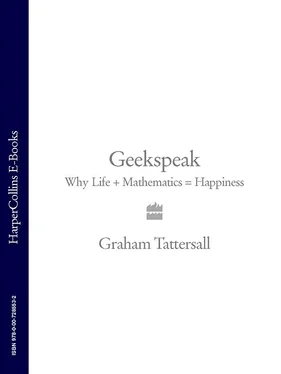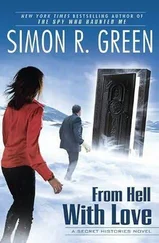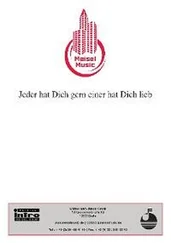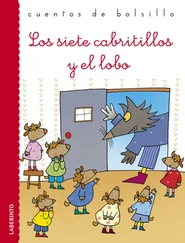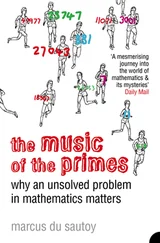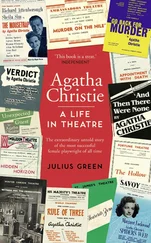GEEKSPEAK
How Life + Mathematics = Happiness
Dr Graham Tattersall

This book is written in memory of my father , who helped raise six children as well as quietly going through life inventing, analysing, and mending anything and everything .
PHOTOGRAPH
ACKNOWLEDGEMENTS
All photos, unless stated, taken from Stock.XCHNG.com.
Introduction: Living with Numbers: #347053, Aleksander Milosevic, Belgrade, Serbia
1 Scrabbling for Words: #650192, Steve Woods/Pinpoint, Essex, UK
2 Pumping Iron: #313419, Josef Lluis Caldentey, Spain
3 Safe as Houses: Author
4 Well Connected: #368906, Cory McKenzie, Canada
5 Fatal Attraction: #696930, Marcos Santos, Brazil
6 Home Alone: #656412, Liv Crazy, Australia
7 Beam Me Up, Scotty: #757924, Artiom, Ukraine (StockExpert)
8 Hidden Death: #97469, Ken Kiser, US
9 It’s For You: #6926, Stephen Gibson/ BudgetStockPhoto.com, Australia
10 War Chest: #522105, Marcin Barlowski, Poland
11 When the Wind Blows: #739813, George Bosela, US
12 You’re Rubbish: #315128, Liton Ali, London, UK
13 Nappy Crap: #560650, Pascal Montsma, Netherlands
14 The Cunning Fox: #769992, Lynne Lancaster (weirdvis), UK
15 Fly Wheels: #735390, Asif Akbar, India
16 Bus Stop: #198141, Tomasz Kowalczyk, Poland
17 Stirring Airs: #442256, Steve Ford Elliot, Eire
18 Dream Flight: #748302, Martin Brooks, UK
19 Processing Power: #370098, Max Brown, Sydney, Australia
20 Soul Mates: #264203, Paul Preacher, London, UK
21 Idiot Calculus: #282161, Anka Draganski, London, UK
22 The Ghostly Present: #708887, Robert Rosmond, New Orleans, US
23 Bad Breath: #398156, Tudou Mao, Shijiazhuang, China
24 Wave Power: Author
25 Mechanical Neurosis: #242268, Philippe Ramakers, Belgium
26 The Final Judgement: #19734, alxm (StockExpert)
27 Heavenly Body: #707105, Wojtek Wozniak, Zabrze, Poland
28 Passing Water: #633517, Emin Ozkan, Zmin, Turkey
29 The Man in White: #700514, Joan Koele, Netherlands
GEEKSPEAK
LIVING WITH
NUMBERS
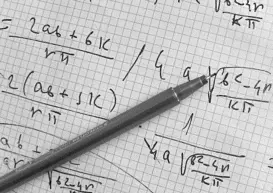
How Much can you work out about your own world?
For as long as I can remember, I’ve been fascinated by how things work . There’s a whole world of cogs, circuit boards and equations behind familiar objects and events, or the figures and statistics we see in the media. I can pinpoint the exact moment when this fascination was born: it was as an eight-year-old child on a family trip to the Scottish Highlands. Frantically looking for a way to distract his squabbling children, my father announced that ‘The first person to tell me the weight of that mountain gets to sit in the front of the car.’ I took on the task, excitedly shouting out wrong answers.
This was power – working out a new number, a new piece of knowledge about the world that hadn’t existed ten seconds earlier. And, it happened in a person’s head. It was amazing.
And that was it: I became a Geek.
A family friend dropped by after our return. He was an amateur radio enthusiast, and his car was festooned with all sorts of antennas. ‘Watch this,’ he said through a large smile, and placed his finger at the bottom end of an antenna.
The faint, sweet smell of burning flesh drifted towards me as the current from the antenna flowed through his skin, heating and burning its extreme outer surface, but without the strength to cause any pain or real damage.
I was transfixed. How had that happened? Why hadn’t it hurt? How deep had the current penetrated? And, was it possible to work out how much energy had been spent in his finger? Here were more questions, more knowledge to attain, more facts and figures, all calculable inside a person’s head.
The fascination with the simple conjuror’s trick of the burning skin has stayed with me, as a desire to explore the hows and whys lurking behind everyday life. And that, in a nutshell, is what this book is about: how to analyse your world and come up with your own new knowledge and understanding.
But perhaps most importantly, it’s about your ability to judge and check ‘expert’ opinion for yourself rather than take it as granted – about using your numeracy to be better informed in debates about our shared future.
Have a look at a couple of ‘expert’ assertions. Do you believe them? How would you judge their validity?
Britain should focus on the development of wind and wave power to meet its electricity generation needs.
Hormone replacement therapy (HRT) greatly increases the risk of breast cancer.
Neither statement can be tested without using some numbers: the amount of power that can be generated by a wind turbine, and the electricity needed to run Britain; and the statistical significance and experimental controls used to make the HRT assertion.
But the numbers themselves are of little value. For a more complete knowledge of the issues, the assumptions, caveats and uncertainties in their calculation need to be understood. And the only way to understand all those is to do the calculation yourself.
Many people think that to perform that kind of calculation you need to be an expert in the given field – which is why we tend to rely on experts. You might go along with that, and decide that it’s best to leave it to the professionals, the politicians and the people in white coats.
But there is another way: a path of knowledge, learning and understanding – the way of the Geek. Not an obsessive, narrow-interest, malodorous Geek, but a nice, thoughtful, sweet-smelling Geek, the kind you’d like as a friend.
A true Geek can get at the truth by understanding the limits of a calculation, by knowing when to approximate 3.783 million as ‘about 4 million’. A true Geek knows how to simplify the analysis so that the answer, though not spot on, will still be accurate enough to guide opinion.
Oh, and a true Geek is interested in the mathematics of body size, and of God, sex, food and a whole load of other things that also interest quite normal people.
And this is the rub. We live surrounded by figures: the power of a wind turbine, the amount the average family spends on food, the fuel consumption of a Boeing 747, the weight of sewage you create each year. Not being able to estimate such figures yourself – not speaking any Geek – is like living in a foreign country and not being able to communicate.
How can you trust statements made by academics, architects, scientists and politicians without checking the underlying numbers?
You can’t!
But you can work it out for yourself. And what’s more, once you’ve done that it’s better than just knowing the fact. You’ll understand the basis and limits of its truth.
So this book is about empowerment, by combining common sense, straightforward arithmetic and a little questioning of received wisdom.
This book shows you how to speak Geek.
1 GEEKSPEAK
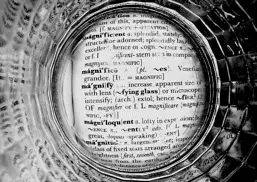
How big is your vocabulary?
Читать дальше
